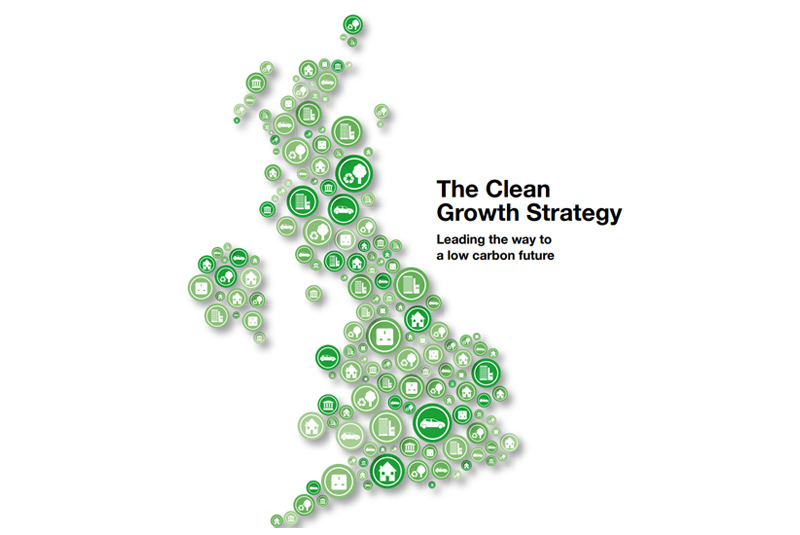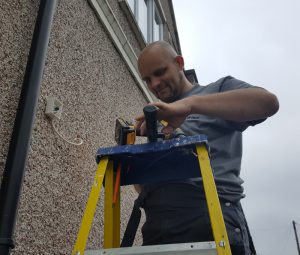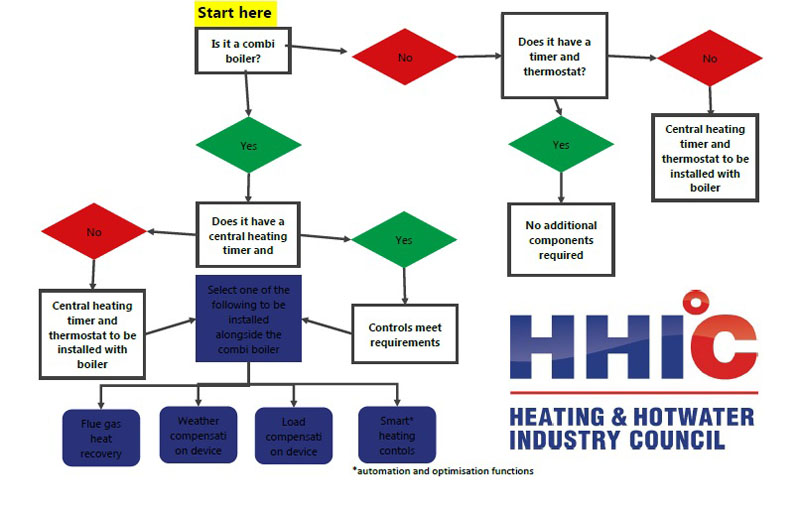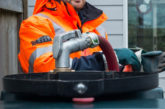
The Government’s Department for Business, Energy & Industrial Strategy recently published its new Clean Growth Strategy document, outlining its proposed approach to building a lower carbon future for the UK.
Also announced alongside this was the Boiler Plus Strategy, following the Heat in Buildings consultation. Specifically, the strategy proposes further changes to the building regulations, including that combination boilers should not only have a minimum efficiency of 92% ErP, but also be installed alongside a time and temperature control, as well as one of four additional measures: a Flue Gas Heat recovery system, Weather compensation, Load compensation, or Automation and Optimisation controls.
A number of manufacturers and industry bodies have had their say on the latest plans from the BEIS. We’ve outlined some of the key reactions below.
OFTEC
OFTEC CEO Paul Rose commented: “OFTEC welcomes publication of the Government’s Clean Growth Strategy and supports the Government’s efforts to improve energy efficiency and reduce carbon

emissions from UK homes.
“In particular, their recognition that consumers need practical, affordable measures which tackle both these urgent issues simultaneously. This approach is the only way real change will be achieved and is in line with OFTEC’s own vision for the future of off-grid heating.
“We believe our two-stage solution, that we published in June, is the most cost-effective way to deliver significant carbon reduction and energy efficiency gains for the UK’s 1.5 million oil heated homes. Our approach would see a boiler replacement programme in the short term (2018-2022) followed by the introduction of a low carbon liquid fuel as a direct replacement for kerosene.
“This timescale ties in with the Government’s ambition to ‘phase out the installation of high carbon fossil fuel heating in new and existing off gas grid residential buildings during the 2020s’.
“OFTEC also supports the overall aims of Boiler Plus to improve boiler standards and controls.”
Viessmann
Viessmann has welcomed the new policy changes and updates which set new standards for the efficiency of gas boilers in the UK.
 Graham Russell, Managing Director said: “We are pleased that these changes will soon be implemented and see them as a positive step for the industry; delivering savings for consumers whilst supporting carbon targets.
Graham Russell, Managing Director said: “We are pleased that these changes will soon be implemented and see them as a positive step for the industry; delivering savings for consumers whilst supporting carbon targets.
“In terms of practical regulatory change, including weather compensation with every heating system change is the lowest hanging fruit given the relatively low cost, demonstrated impact and applicability across different heating systems. Indeed, weather compensation controls are already routinely installed in the UK by many Viessmann-trained installers.
“This is the first step in securing a boiler efficiency revolution, which ensures efficiency gains and improvements in heating over the long-term. Viessmann will continue to work closely with the supply chain and government to ensure that consumers receive exceptional service using the best available, cost-effective heating innovations.”
Flogas
Lee Gannon, Managing Director at Flogas Britain, has also welcomed the report – hailing its recommendations around decarbonising heat in off-grid homes and businesses as ‘exciting news’ for the LPG industry.
Lee comments: “Through the publication of its Clean Growth Strategy, the Government has made clear its intention to reduce carbon emissions from off-grid UK homes and businesses. This includes a pledge to tackle the challenges faced by businesses using oil boilers in particular – and a motion to phase out the installation of high-carbon forms of fossil fuel heating in businesses throughout the 2020s, starting with new builds.
“As a leading supplier of LPG in the UK, we see this as exciting news for the industry. LPG is the lowest carbon conventional off-grid fuel available today, and it has a crucial role to play in turning the Clean Growth Strategy’s vision into a reality. Put simply, LPG is a cleaner, cost-effective alternative to the likes of coal and oil – emitting 35% less carbon than coal, and 12% less than oil.
“Logistically speaking, it is also a readily available, accessible solution to the country’s rural energy needs.”
Worcester, Bosch Group
Urging Ministers to quickly ‘flesh out the details’, Neil Schofield, Head of Government Affairs at Worcester, Bosch Group commented: “The Clean Growth Plan is a welcome contribution to the debate about the UK’s energy future, but too much of the proposal is electricity focused and there is a real lack of clarity in certain areas. The heating industry needs to treat this with a certain amount of caution until we know more and the Government has fleshed out the details.”
 Mr Schofield does say however, that proposals for decarbonisation of the gas grid are a positive. “All options, including hydrogen, are still on the table which is good news. The Government is also committing to further feasibility studies and research, which mirrors a lot of the work already being undertaken by ourselves at Worcester, Bosch Group and others in the heating industry into developing hydrogen-powered boilers.”
Mr Schofield does say however, that proposals for decarbonisation of the gas grid are a positive. “All options, including hydrogen, are still on the table which is good news. The Government is also committing to further feasibility studies and research, which mirrors a lot of the work already being undertaken by ourselves at Worcester, Bosch Group and others in the heating industry into developing hydrogen-powered boilers.”
Mr Schofield also expressed some scepticism. “Although there are no specifics and the strategy refers to ‘off-grid fossil fuels’, my interpretation is that this is the beginning of a move to phase out oil heating. This needs very careful handling, because oil is a significantly cheaper option compared to electricity and off-grid homes could be faced with a very significant rise in their energy bills. With off mains gas properties generally being difficult to heat, we may even find ourselves using more carbon – since a poorly performing heat pump run from fossil fuelled by electricity is unquestionably worse than a high efficiency oil-fired boiler.”
HHIC
The HHIC has focused on Boiler Plus. Alongside a host of other measures, this policy will require that a new minimum performance standard for domestic gas boilers in English homes will be set of 92% ErP. The ErP Directive aims to phase out poorly performing products across a range of product groups to reduce carbon emissions across Europe, with the ultimate goal of achieving the EU’s 2020 targets.
The Council have said that the premise of the legislation is that it will encourage, and enable, householders to make informed decisions about the products that best meet their needs. The degree of flexibility in terms of which entities render a new boiler ‘compliant’ means that the diversity of the house stock and needs of the consumer are catered for.
Given the extent to which domestic heating contributes to emissions, the new standards, coming into effect in April 2018, will help reduce carbon emissions by 2 MtCO2e in the fourth Carbon Budget and 3.2 MtCO2e in the fifth Carbon Budget, and encourage consumers to prioritise the thermal comfort and energy efficiency of their heating.
For more information regarding the proposals, click on the links below:













